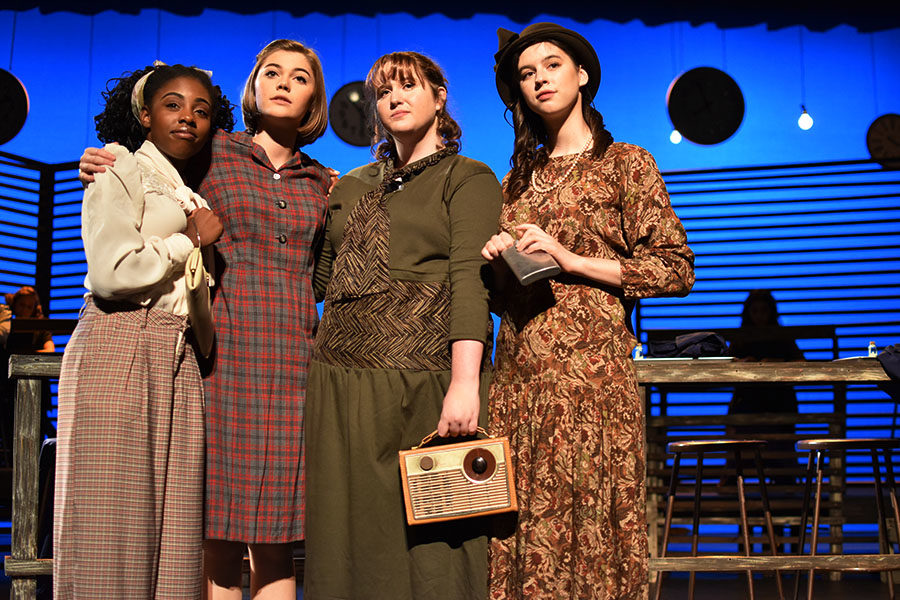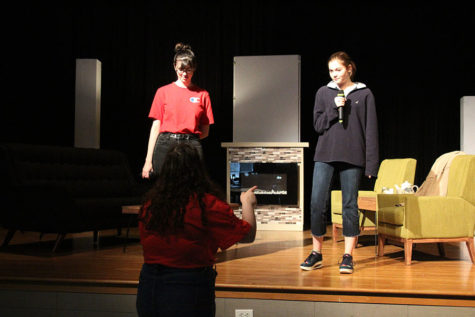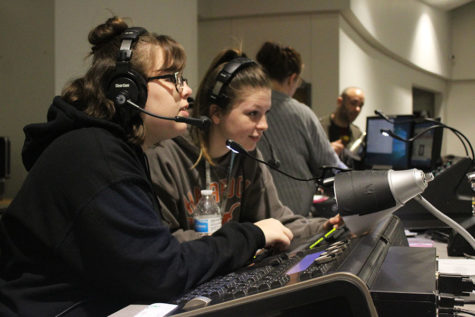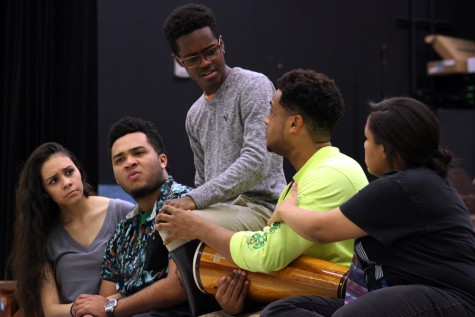Inking in their impact
Theater department goes back in time to the ‘20s with ‘These Shining Lives’
Juniors Eliana Jones and Madelyn Bloom and seniors Cadence Hindman and Sophia Cauduro pose together as the radium girls during a scene. Photo courtesy of Dawn Clyburn.
Theater is putting on the play “These Shining Lives” by Melanie Marnich on Thursday, Sept. 19 through Saturday, Sept. 21. The show will tell the true story which changed laws in Illinois to accommodate progressive women’s rights and improve working conditions for female factory workers in the 1920s. The play demonstrates how much effort it took females in the early 1900s to achieve protection in the workplace.
“‘These Shining Lives’ is about a group of women known as the radium girls,” head director Alex Rodriguez said. “The ink that they had [to work with] had radium in it. They didn’t know it was bad.”
Even though the play is set a century ago, Rodriguez and the cast and crew see this opportunity as a learning experience to better their individual skills with a play set in a time they aren’t familiar with. They had to work to mimic accent, word choice, movement and style of the era.
“[This play] fits the kids really well,” Rodriguez said. “It has great relationships. The characters really have a lot of [motivation] to hang in front of themselves.”
Senior Kaylie Davis, the stage manager for the play, assists everyone to ensure the play goes according to plan and is perfect for opening night. Bouncing between running lines with actors and making sure all props are in order, she is the directors’ right-hand man.
“I keep track of all [the actor’s] movements,” Davis said. “Then for technicians and crew members, I keep track of all of their cues and what they need to do at what time.”
With the story set in a time unfamiliar to the students, they have to put in more effort to accurately represent the characters they’re portraying.
“We aren’t as proper as they used to be,” junior Madelyn Bloom said. “A big thing is knowing how to talk, it’s very different than how [people] talk now. Figuring out how men [would] affect the women and how they would act in front of their kids and other people.”
With this being the department’s first play to the public after a change of directors, the cast and crew hope for the play to run smoothly. Directors plan for not only the acting to impact the audience, but also convey the overall message of fair treatment in factories for women.
“This play requires the actors and actresses to let themselves feel what’s happening to them in the moment,” Rodriguez said. “Being vulnerable and letting the audience feel it with them.”


















